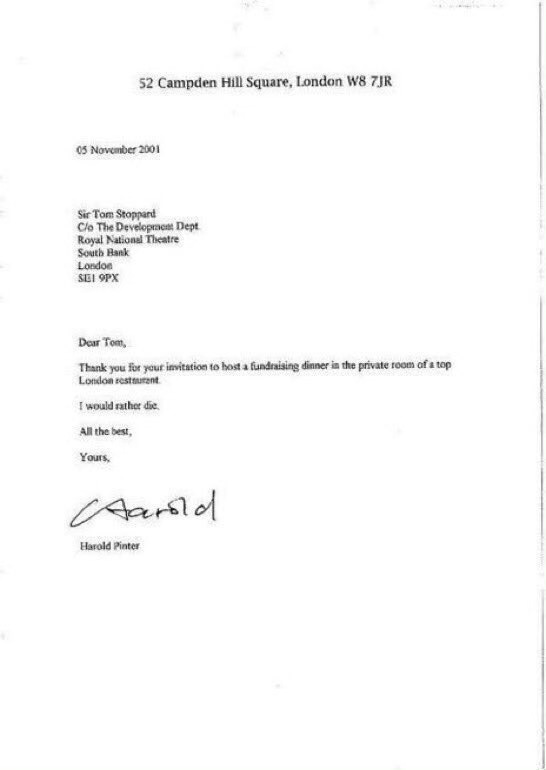How to set proper boundaries
Alexandra Hudson on why it's civil to say "no", a book giveaway, and the video replay of our Candlelight Chat!
Dear You,
One of the most common concerns we hear at Quiet Life has to do, in one way or another, with boundaries: how to maintain them, whether to maintain them, how to know whether you’re doing it “right”.
Our guest for last Sunday’s Candlelight Chat, Alexandra (Lexi) Hudson, has a lot to say on this topic - so I’ve invited her to write a “guest post” for us. (Quiet Life members can scroll down to the end of this note, to watch the video replay of our Chat.)
Lexi is an author, speaker, and founder of the newsletter and intellectual community Civic Renaissance with Alexandra Hudson. Her book is The Soul of Civility: Timeless Principles to Heal Society and Ourselves. She’s also the creator of a new TV series for the Great Courses called Storytelling and the Human Condition. She has been invited to share her ideas all over the place, including the U.K. Parliament! And she has a generous, effervescent spirit, and is ridiculously erudite.
If you enjoy Lexi’s thoughts, you also might be interested in entering our “Book Giveaway,” where you’ll have a chance to win one of seven free copies of her book. More info on that, below.
And now, here’s Lexi!
*
“Gracious Reader,
My name is Alexandra Hudson. I am an incurably curious lifelong learner passionate about beauty, goodness, truth, and reviving the wisdom of the past to help us lead better lives.
I am also, as Susan might say, an “extroverted introvert.” I love spending time with people—and I am deeply interested in the human social experience, the topic of my book!—yet I thrive in solitude and silence. For instance, after a magnificent candlelight chat that Susan invited me to join this past Sunday—where I enjoyed engaging with your thoughtful reflections and questions about the nature of civility and the good life—I immediately took a two-hour nap to recharge! (That might also have something to do with the fact that I’m 37 weeks pregnant, but the point still stands. 😊)
Why It’s Civil to Tell Others “No”
Civility requires respect for others—and respect for others means telling hard truths that may sometimes feel impolite. Civility also requires respect for oneself. Politeness, by focusing on outward compliance with manners and norms, enables us to paper over important differences instead of grappling with them directly. Civility, however, enables us to discuss important differences while truly respecting others, and it also helps us respect ourselves by empowering us to say "no" to others unapologetically and maintaining healthy personal boundaries.
Setting boundaries and saying “no” to others may seem impolite, especially for those of us who have been raised in a culture that values politeness and encourages us to stay silent or say “yes” to avoid offending others. But having firm personal boundaries and ensuring our own space isn’t encroached upon—by becoming comfortable with declining others with grace—is what civility requires. It is a means of respecting both others and ourselves.
Politeness—and unquestioning compliance with social expectations—is easy. Civility—grounded in genuine respect for the dignity of others and ourselves—requires effort, risk, daring, and vulnerability. But the hard work of civility is, as my book explores, the glue that has bound human communities and civilizations across time and place. It’s a challenging project that people have struggled with but have committed and recommitted to for generations.
I love how this quote by Russian playwright Anton Chekhov embodies how true civility is more than politeness: “Good manners isn't about never spilling on the tablecloth; instead, good manners is about pretending not to notice when other people do.”

“So, what do loving and civil boundaries — that respect both you and others — mean in real life?
Here are five ways to set stronger boundaries:
1. If someone makes a request of you that you’re unsure about, or you think you might later regret, imagine how your future self will feel about the commitment: if any part of you feels as if you might resent them —or yourself—say no!
2. Remember that "no" is a complete sentence. You don't owe people explanations for why you are declining.
3. When experimenting with saying no civilly, it's ok to err on the side of caution at first, saying no to most things --and then working your way back to integrating "yes’es" into your life as you can/as it brings you joy to do so.
4. Remember a lovely story that my friend Adam Grant tells so well about saying "no"--unapologetically. E.B. White, author of Charlotte's Web and other lovely children's stories, received many invitations. He was a master of the civil "no": he frequently declined without shame. See his letter, up top.
5. If you find yourself on the receiving end of someone saying "no" to you, try not to feel hurt, or rejected, which is sometimes easy to do. Instead, try to see the "no" through a charitable lens. Tell a story of exoneration: "They're probably just overwhelmed right now! Resist stories of condemnation: "They don't like me" or "They aren't a good friend." Remember, it's usually more about them than about you.
*
Thank you for being part of the Quiet Life, and for your enthusiasm in bringing greater beauty to the world around us—a project made possible by true civility.
Warmly,
Lexi”
*
Interested in winning a free copy of Lexi’s book, THE SOUL OF CIVILITY?
To enter to possibly receive one of seven free copies, all you have to do is share this post with a friend who might enjoy it, and fill out the information on this form. (For shipping reasons, unfortunately we have to limit this giveaway to U.S. and Canada residents.)
And finally: if you’d like to watch the video replay of last Sunday’s Candlelight Chat with Lexi, here it is below! (This is for Quiet Life members only).
As always, I’d love to hear from you.
*Do you ever struggle with maintaining proper boundaries?
*Which of Lexi’s ideas above do you find helpful?
*Do you have others that you’d like to share?
Please share a comment with us all!





When asked to join the Board of Directors at my condo/homeowners association, I responded: "I would rather be tied to a stake at a ten-hour ____ rally."
:-)
(At "___", fill in the name of a certain political candidate)
I love the "I would rather die" answer! I would call that borderline civility, though.
I am a CliftonStrengths coach. Gallup (the maker of CliftonStrengths) has conducted stats about the strengths in the community that took the assessment, and while that, for several reasons, does not tell us anything about humanity, it is an interesting data point.
There is a strength called Responsibility. It is characterized by the urge to finish projects one has committed to according to one's own high standards, which are usually higher than anybody else's. The feeling of successfully finishing is such a motivator that these people tend to say yes too often.
And, you might have guessed it, it is one of the most found strengths in the stats.
There are good reasons for somebody with the strength of Responsibility to learn to say no. If you cannot finish according to your standards, you will suffer. You will lose belief in yourself and might even get sick.
But there is a remedy. Turn Responsibility on yourself. Make your health and sanity a project of yours. I always tell my clients to view their strengths as a team in their head or heart they can speak to. Or that can speak to them. (With CliftonStrengths, you get a set of about 10 strengths that are yours. To explain the concept in full would be too much for this comment.)
Interestingly enough, most people with Responsibility know perfectly well how to say no. They say no to themselves all the time. Somehow "depersonalizing" Responsibility, or maybe better, somewhat splitting it from yourself helps draw on that strength to say no to others, while being more able to say yes to yourself.
There is a pro way that you will soon learn. Ask yourself what is on your plate already and whether you can do what you are asked to and still not only finish those things well, but stay sane. If not, apart from saying no, you can ask to be released from another task. Just make sure that this other task is finished or handed over in a way you see as a success. Or you can ask for help and delegate.
I like the five points Alexandra is making. Tis is a good basis to start from.
(If anybody wants to know more about CliftonStrengths, let me know.)